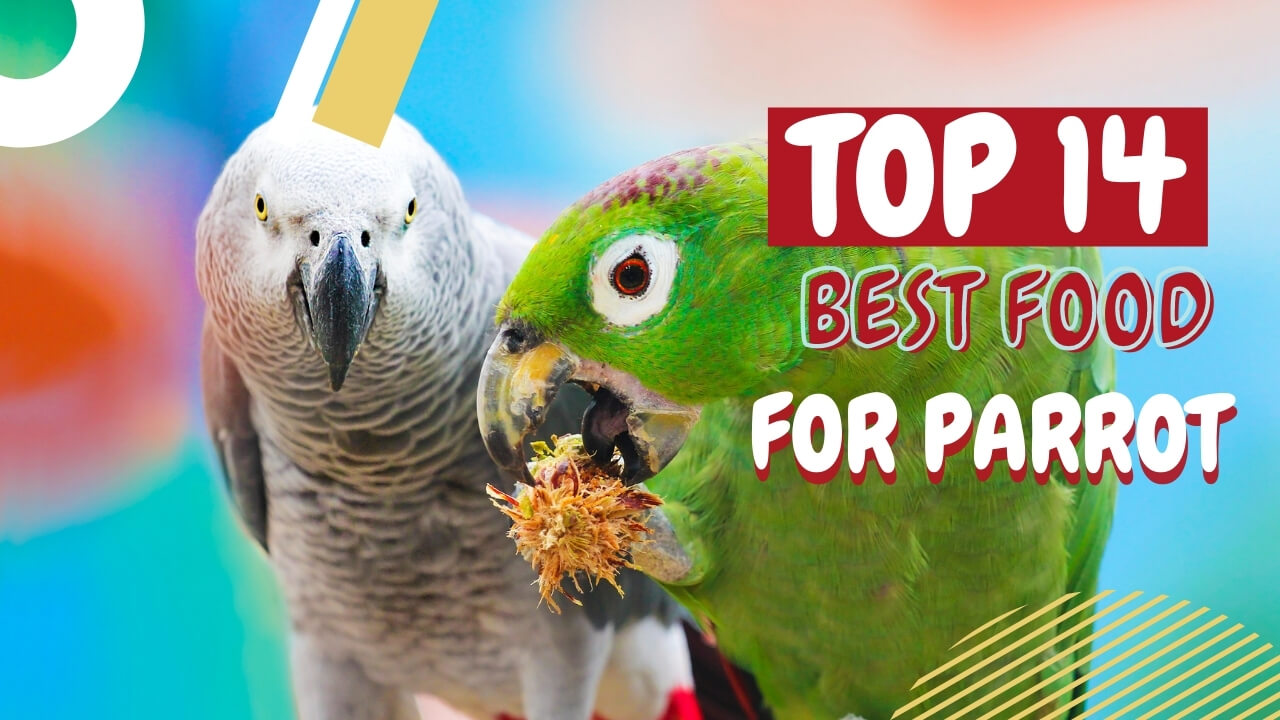Parrots are often expensive pets to have, and as such, you want to make sure that they always have the best foods possible.
When it comes to what is best for a parrot’s diet, there are many different opinions. Some people say that pellets or seed mix is the way to go, while others would argue that vegetables and fruit should be the main staple of their diet.
Whether your parrot is an African Grey, a Cockatiel, a budgie, or something else entirely, we’ve got you covered with this list of 14 foods for their diet. This article will discuss how each type of food affects a parrots health and which ones are considered “the best” foods for them!
Blueberries

Blueberries are a great source of nutrition for parrots, and they are often available. They contain many different types of vitamins and minerals, including the highest vitamin K levels and high manganese content.
Blueberries, rich in flavonoids and antioxidants — have long been considered nutritious and an engaging health-promoting fruit. In addition to antioxidant activity, blueberries have been shown to enhance cognitive development and function as well as positively affect mood.
Blueberries are also a good source of vitamin C, which is critical for the health of your parrot’s immune system.
Raspberries

Raspberries are a great treat for parrots, and like blueberries, they contain vitamin C and manganese.
They also contain an abundance of powerful antioxidants and vitamins, which can help boost a parrot’s immune system and prevent disease. Raspberries also support the digestive and cardiovascular systems and improve respiratory function.
Here is a dedicated page we wrote on how raspberries can help improve your parrot’s health and what makes them so good for your parrot:
Sunflower Seeds
Sunflower seeds are a delicious and nutritious snack! But they often get a bad reputation. This reputation is mostly due to people relying on sunflower seeds as the only food for their pet parrots.

Sunflower seeds, which are actually quite nutritious, are packed with:
- Vitamin E
- Thiamine
- Riboflavin
- Niacin
- Vitamin B6
- Folate
- Pantothenic acid
- Omega-6 efas
Do not make sunflower seeds the base of your diet. They should be seen as more of an occasional treat or a reward. Although it does have several necessary amino acids, it is not a complete protein.
The reason for that is because there is a high percentage of saturated fats contained in these small yet tasty sunflower seeds.
Collard Greens
Collard greens, including cabbage, broccoli, and spring greens, are considered one of the healthiest vegetables on earth and have the best combination of nutrients. Collards also contain magnesium and calcium, making them an amazing food for parrots.
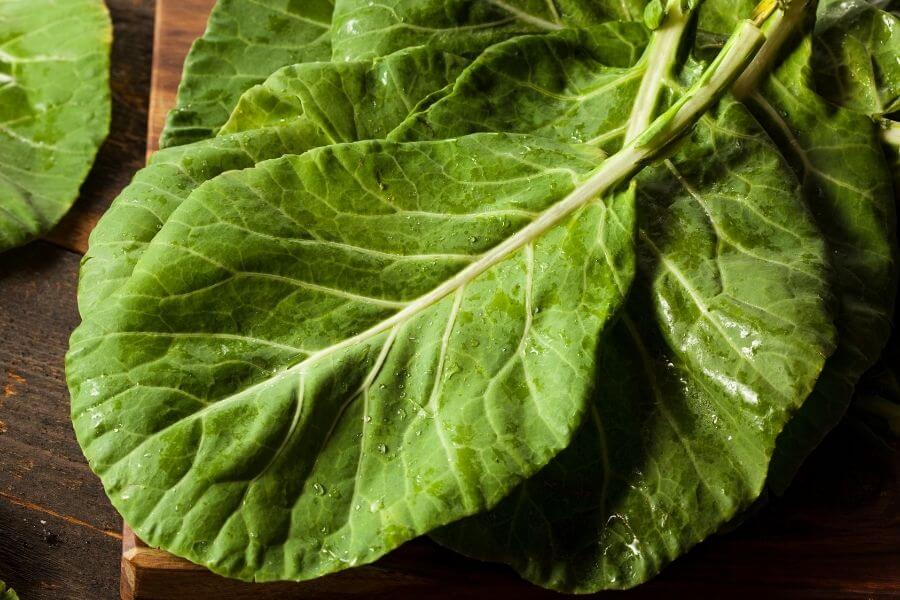
Collards are an incredible source of:
- Vitamin A
- Vitamin K
- Calcium
- Omega-3
- Omega-6 Fatty Acids
Some leafy greens, such as spinach and chard, contain more oxalic acid. This can bind the calcium in food and make it impossible for those foods to absorb or process calcium when eaten raw.
You can feed your parrots collards in many different forms:
- hanging a whole leaf in a cage for parrots to nibble or even rip apart
- finely chopped
- mixed in with fresh food
- used as a wrapper for other foods
You can bathe your parrot by gently wetting the bottom of a shallow pan with half an inch to one inch or so of water and place in some collard leaves.
Many parrots would enjoy doing so.
Other healthy green vegetables with similar nutritional values are kale, turnip greens, mustard greens, and dandelion greens.
Cinnamon
Cinnamon is believed to positively affect maintaining proper blood sugar levels and lowering cholesterol in humans.

But do you know that most parrots like the spicy flavor of cinnamon?
It has a decent source of:
- Calcium
- Vitamin C
- Vitamin K
- Manganese
Cinamon can have a mild anti-inflammatory effect and also has anti-fungal properties.
You can sprinkle cinnamon in any fresh food mixes before feeding them to your parrot.
Just as with anything, too much of a good thing is never a good idea. It should only be fed in moderation.
Some parrots enjoy the taste of cinnamon sticks, but they are more often used as a rip toy than food.
Oranges or Citrus
I once read in an article that parrots can produce their own vitamin C and do not necessarily require it in their diet.
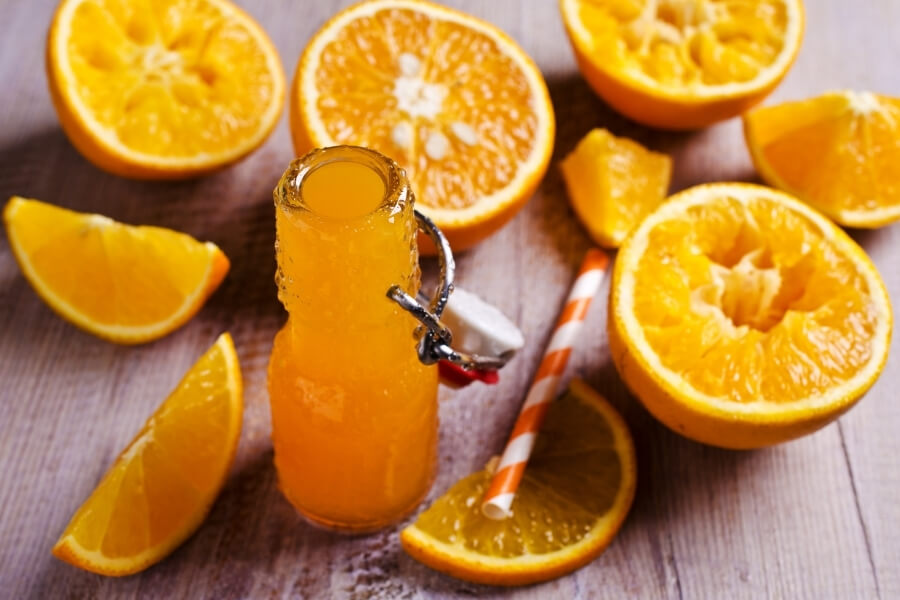
But there is a lot of evidence that parrots benefit from the inclusion of vitamin C in their diet, and most avian vets suggest offering it.
Most people offer their parrots oranges because they are generally affordable and available. The major reason that it’s included as one of the best foods for parrots is that they provide parrots with vitamin C but more than just vitamin C.
Some parrots with health problems can’t produce vitamin C, and it’s a good idea to feed foods rich in Vitamin C several times a week.
Oranges, tangerines, and tangelos should not be a major part of a parrot’s diet due to their acidity. However, they are still considered healthy foods for parrots.
Oranges are healthy for human beings as well as birds because they have lots of good nutrients which are important for your parrots. The most important ones are antioxidants that protect their immune system.
If you’re looking for a truly healthy snack, don’t forget to give your feathered companion something oranges! Not only does it make for an easy and yummy treat, but the orange peel is packed with powerful phytonutrients and bioflavonoids.
The next time you offer your pet a slice of orange, remember to leave the peel on; it’s the inner rind and pulp that contains all those nutritious goodies!
The phytonutrients include citrus flavanones, anthocyanins, hydroxycinnamic acids, and a variety of polyphenols.
A bioflavonoid called hesperidin can help people to lower their blood pressure and cholesterol levels. It also has an effect on the body’s immune system.
Before feeding, wash the orange’s rind. If you can find organic citrus, that is perfect.
The only problem I want to point out in feeding vitamin C in the diet is that this nutrient helps unlock the iron in foods. Since Too much iron in the diet can increase the risk of iron storage disease in some parrots, you will want to feed citrus and iron-rich foods separately.
For example, It’s best not to add citrus fruits and leafy green veggies to the same mix for your birds.
Green Tea
It’s important to be cognizant of the health benefits of green tea, which are great for parrots. Green tea contains antioxidants that are good for the immune system.

Green tea also stimulates metabolism, which is perfect for parrots because they have a high metabolism rate.
I never use black tea because it has caffeine and high levels of tannin, which can bind iron and make it difficult for the body to absorb.
Green Tea is good for the immune system but you don’t want to overdo it or give your parrots green tea too often.
Tea is not harmful to parrots or any other animals in most cases. It may be used as a treat or a mild stimulant in tiny doses.
Almond Butter:
Tell you a secret: how to make your parrot love you? Give it almond butter.
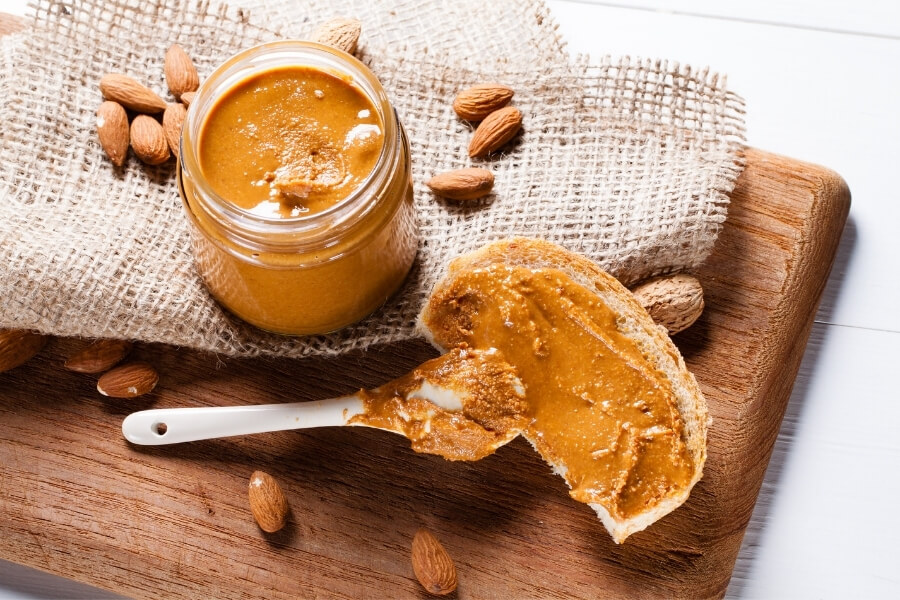
Almond Butter is a fun and nutritious Snack for Parrots! It is healthier than peanut butter, and most parrots like it way more than peanuts or any other type of nut butter.
You can put some on a finger and let the bird lick it off, or smear it on top of fresh healthy veggies, like cucumber slices. Almond butter will help keep your bird happy and healthy!
It contains a good source of:
- vitamins and minerals
- healthy fats
- fiber
- essential fatty acids
To make sure you’re not overdoing it on fat content, try to keep it to one serving every couple of days or less for your parrots’ diet.
Almond butter can also be made into a milkshake type of drink by mixing in pureed vegetables like sweet potato, celery, and carrots (I recommend starting with just one or two of these at first).
I used to have my Africa grey “Gary,” who was having trouble eating vegetables. So I started putting almond butter on broccoli, and it didn’t take the bird long to eat the vegetable.
Low-fat Yogurt:
I give my parrot yogurt three times a week. Yogurt is beneficial for his digestive health and gives him all of the nutrients he needs to keep his bodily processes functioning properly. I usually spoon-feed yogurt to my parrots in tiny portions.
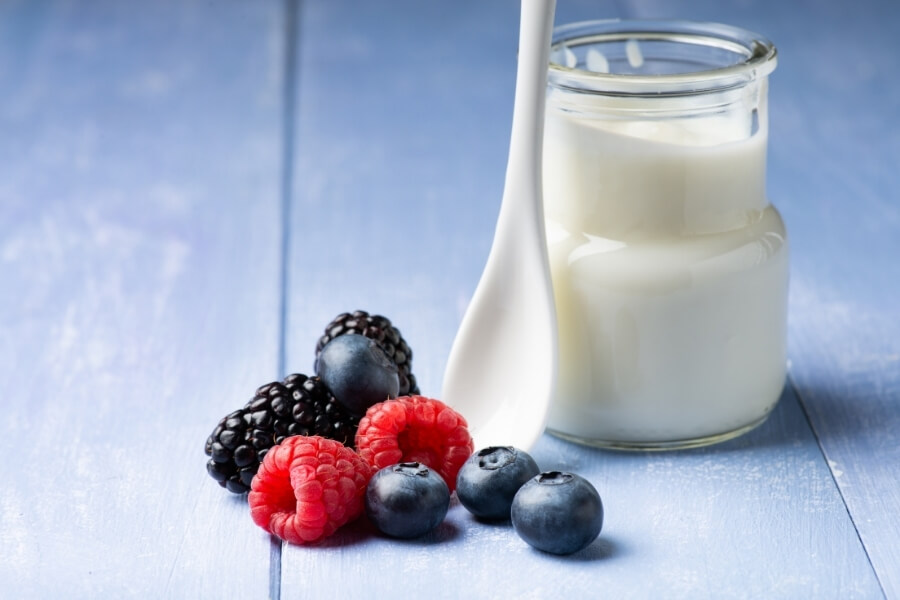
You may use yogurt to add flavor and variety to your bird’s diet or make bread with it and serve it to your parrot.
Yogurt is also a source of calcium which is important for maintaining healthy bones and spinal cord function. Parrots need calcium in their diet because they are susceptible to osteoporosis just like humans are.
Yogurt can be combined with fruit, veggie purees, or vegetables.
If the proper supplements are added to yogurt, it can also be a great source of protein for parrots.
Most parrot owners and breeders will tell you that they see improved activity and feather condition when they add yogurt to the avian diet.
Yogurt is an excellent source of
- calcium
- protein
- riboflavin
- vitamin B12
- other nutrients
Make sure you’re buying high-quality, fresh, and low-fat yogurt. Any type of yogurt that contains sugar, high fructose corn syrup, additives, or flavors should be avoided.
Quinoa
Grains are nutritious and beneficial to your parrots. Quinoa is a grain that is nutrition-rich and easy to digest.

Quinoa can provide parrots with an excellent source of fiber, which helps maintain healthy digestion.
It has the potential to reduce the risk of obesity, lower blood pressure levels in overweight individuals, and reduce high blood sugar levels in diabetics.
Quinoa is a complete protein and it includes all of the amino acids essential for a parrot’s health. Quinoa has antioxidants, omega 3, folate (a vitamin B), and fiber in addition to minerals such as magnesium, copper, iron, and zinc that are necessary for a parrot’s health.
Meat & Eggs
Parrots need protein, just like us! Many people have a mistaken belief that parrots only eat seeds and nuts. That’s not true! All parrots need a substantial amount of protein in their diets.
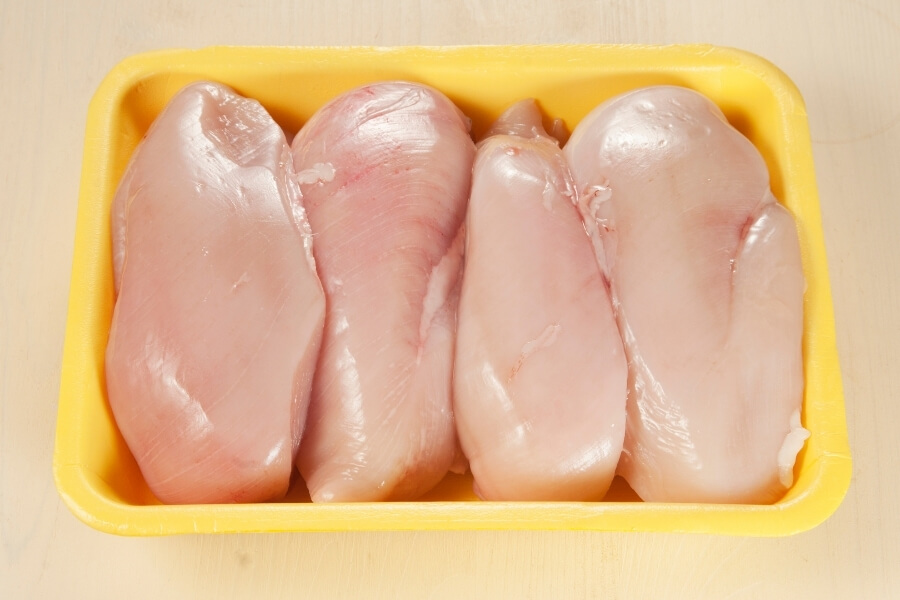
If you’re going to give your parrots a healthy diet, you need to include a source of animal protein.
White chicken is an excellent source of protein, according to research.
Parrots require a lot of amino acids, and well-cooked, lean white chicken closely satisfies their nutritional needs.
Egg whites are another high-quality protein source. Both should be used in moderation since the proportion of a parrot’s diet should not exceed 20 percent. Remember: Organic is best.
Make sure the chicken is very well cooked and don’t leave any food in the cage for more than one hour.
Caution: Stay away from any canned foods, repacked boxed dinner meals as they often retain too many chemicals and salts that are not good either for your parrot or you.
Pasta
Pasta is a food that gives the perfect opportunity to provide an easy and economical meal for your parrot.
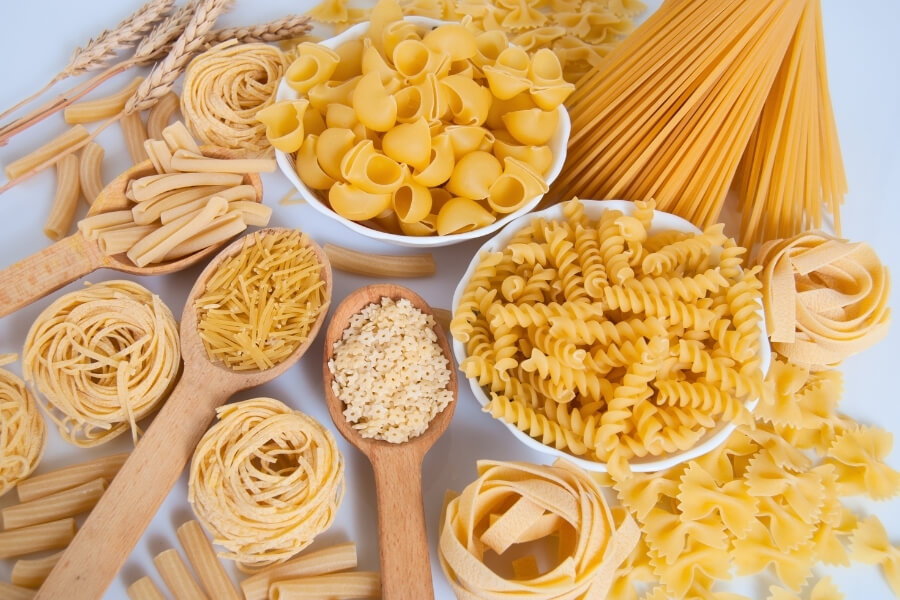
The kids love it and so do your parrots! Cook some pasta and mix it with vegetables such as carrots and broccoli.
There are many different healthy options that allow for a nutritious pasta dish. Just don’t make pasta a staple of your parrot’s diet.
While it’s fine to give your bird some now and then, pasta isn’t a healthy food option on a regular basis.
Most foods that are good for us just don’t have the proper nutrients to keep your bird at its best, and pasta is no different.
Hemp Oil:
Keeping the feathers of your parrot healthy can be difficult since they are so delicate.
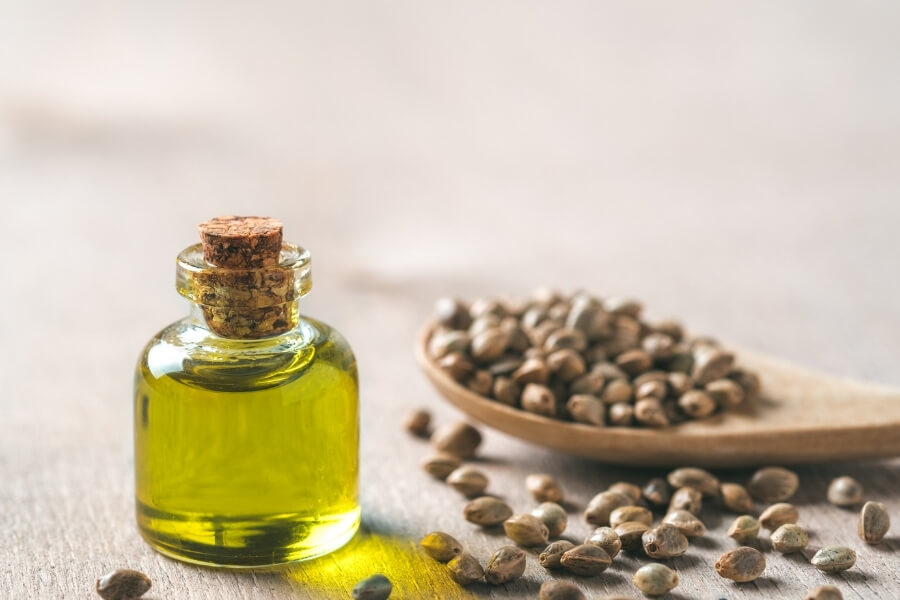
Some people have to use creams and lotion to keep their skin from drying, but obviously, this isn’t something that can be applied to a parrot.
It is important to maintain the health of their skin because dry skin can lead to excessive feather shredding.
Bathing them too often will only dry out their skin even more, so it’s important that you give them a quality source of Essential Fatty Acids (EFAs) in order to keep their skin healthy.
Giving them EFAs will make a huge difference in their health and will make keeping your parrot’s feathers healthy much easier.
It is my opinion that hemp oil is an excellent source of Omega-3 Essential Fatty Acids for your parrots.
Hemp oil has little or no taste or color, meaning that most parrots will accept it on their foods relatively easily.
Sweet Potatoes Or Yams:
Sweet potatoes or yams are a fantastic vegetable for parrots and an essential part of their diet. Sweet potatoes are high in fiber, low in cholesterol, and free of fat.

Foods rich in beta carotene, such as sweet potatoes, can help maintain the immune system and strong eyesight.
A lack of beta carotene can lead to feather-fading and eye problems for your bird companion.
When you are grocery shopping, it is important to look for yams with the deepest shade of orange as this is a strong indication that there is more beta carotene in the yams, which will help keep your parrot safe and healthy.
The ones with the deep orange flesh are loaded with
- vitamin A
- vitamin C
- vitamin B6
- other vitamins and minerals.
Tips: You can also stream it without having to worry about losing any important nutrients.
Sweet potatoes can be fed raw, but for the sake of parrots’ digestion, you’ll want to steam them. But don’t overcook them as it will cause them to lose nutrients.
The many different types of sweet potatoes are just as nutritious as the pumpkins, carrots, and other vegetables that are high in vitamin A. People can shred sweet potatoes into their meal mix or soup for a nice flavor. You can also add organic sweet potato baby food after it has been cooked for easy nutrition.
